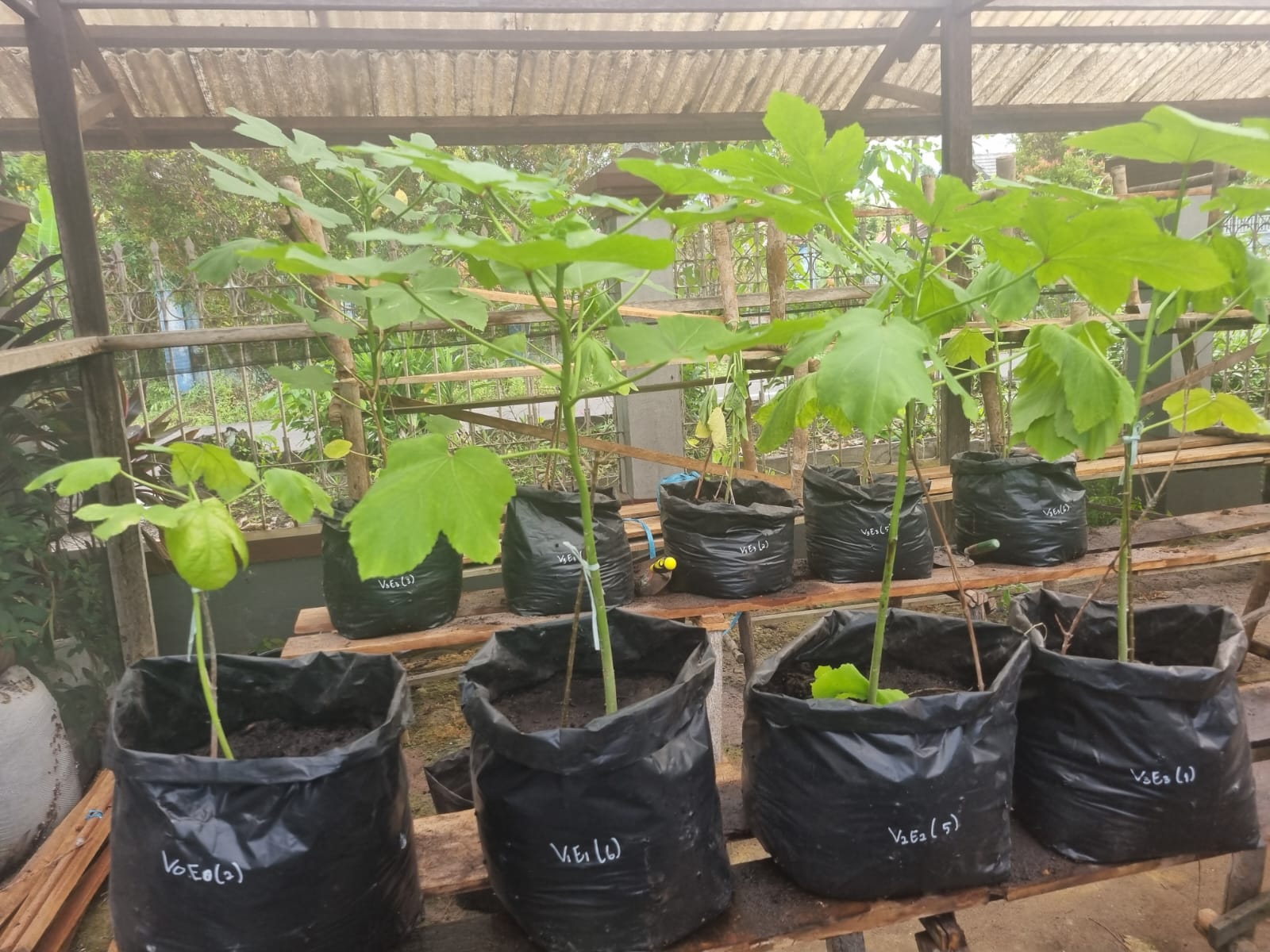Growth and yield of Okra (Abelmoschus esculentus L. Moench) treated with vermicompost and eco enzyme in histosol soil
DOI:
https://doi.org/10.62090/znjzjp76Keywords:
vermicompost, organic liquid fertilizer, growth and yield, okra, eco-enzymeAbstract
This study explores the efficacy of ecoenzyme and vermicompost on the growth and yield of Okra plants (Abelmoschus esculentus L. Moens). The ecoenzyme, derived from three types of fruit peels and two local vegetable wastes in Central Kalimantan, is proposed as an organic liquid fertilizer to replace chemical alternatives, promoting environmentally friendly agricultural practices. Simultaneously, the incorporation of ecoenzyme, along with vermicompost, is anticipated to enhance the physical, chemical, and biological properties of peat soils, serving as a growth medium for Okra plants. The experimental setup involves a completely randomized design with four stages of POC ecoenzyme and vermicompost administration. Treatments range from a control group (E0V0) to various combinations of ecoenzyme and vermicompost in different doses (E1V1, E2V2, E3V3). Observations, including plant height, leaf characteristics, and fruit metrics, were conducted at multiple intervals. Results indicate that the treatment with 60 ml of ecoenzyme and 125 gr of vermicompost per plant significantly influenced Okra growth and yield. Higher doses, as in V2E2 and V3E3, were deemed excessive. The study suggests further exploration of the interaction between ecoenzymes and vermicompost using a two-factorial complete randomized design for comprehensive insights.
Downloads

Downloads
Published
Issue
Section
License
Copyright (c) 2023 Merti Suriani, Alpian (Author)

This work is licensed under a Creative Commons Attribution-NonCommercial-ShareAlike 4.0 International License.









